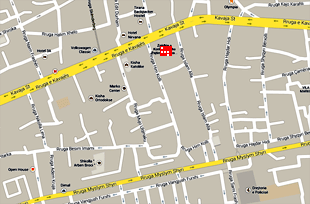PEER MEDIATION AND RESTORATIVE DIALOGUE IN SCHOOL ENVIRONMENT - as component of the program on STRENGTHENING JUVENILE JUSTICE SYSTEM IN ALBANIA
Supported by Save the Children OrganizationThe program “Strengthening Juvenile Justice System in Albania” (2013-2015) aims at strengthening and increasing the capacities of state institutions for protection of juveniles in conflict with the law rights and their reintegration into society through prevention, awareness, social and legal programs. The main components of the program are service provision for juveniles and youths in the justice system, lobbying for the rights of juveniles in contact with the law in Albania, and activities in the field of conflictuality prevention at school environments.
The Albanian Foundation for “Conflict Resolution and Reconciliation of Disputes” (AFCR) is one of the partner organizations implementing the project “Strengthening Juvenile Justice System in Albania” supported by Save the Children.
AFCR implements the project component “Peer Mediation and Restorative Dialogue in School Environment” in 16 elementary and secondary schools in Albania: Tirana, Durresi, Fieri, Vlora, Elbasan, Korça, Shkodra and Malësi e Madhe.
The main goals of project intervention are: to prevent and reduce violence in the school environment through the establishment of peer mediation group; motivate the peers to come together and get a solution; involve peers, their parents and teachers in resolving conflicting situations; explore possibilities of integrating peer mediation and restorative dialogue in school curricula/extra curricula.
The strategic interventions in the field of conflict resolution and education are focused in:
- Lobbying and advocacy activities in education system (Ministry of Education and Sports, Tirana Regional Directories of Education, Institute of Curricula and school levels) for the development of Peer Mediation and restorative dialogue modules in school programs.
- Building institutional cooperation with regional education directories, elementary and secondary schools, to make possible the recognition and application of peer mediation and restorative dialogue instruments in resolving conflicts at school community;
- Awareness and capacity building for teachers, psychologists and students, through awareness workshops and other interactive activities in schools in the field of Peer Mediation and Restorative Dialogue.
- Identification and conflict case management in school settings through the instrument of Peer Mediation, Restorative Dialogue and peacemaking circles.
The component achievements for 2014:
• Organization of three consultation round tables with specialists of MoES, Development Education Institute, teachers, etc., to promote the development of a comprehensive strategy to prevent and reduce the level of conflicts and violence in schools. 35 education specialists discussed about the development of mediation and restorative dialogue modules in curricula and extracurricular school programs, identifying spaces and possibilities for integration.
• Consolidation of the peer mediation approach in conflict management in schools through the implementation of 208 activities on peer mediation and restorative dialogue in 16 schools.
• 480 students have participated in the project activities and trained in peer mediation and restorative dialogue. In each school a group of mediators was established. In total 240 conflict cases were settled by the student’s mediators’ in schools.
• Increased capacities of 38 teachers and psychologists in conflict management and resolution through the organization of two training workshops (basic and advanced level). This will help and positively affect the continuity and sustainability of the project in the future.
• Apart from school community awareness, there is also increased awareness of parents community in peaceful conflict management approaches through the participation of 160 students parents in the project awareness activities.
• Increased awareness of 33 police officers who participated and were part of the program for mediation and restorative dialogue application in schools.
• 16 corners of mediation were displayed in each school, exposing and promoting mediation among peers in the school community.
• A toolkit for school staff was prepared and printed in 350 copies. It provides teachers and students with information on how to approach Restorative Dialogue and advise them on peer mediation.
• A survey was conducted in the 16 elementary and secondary schools targeted by the project. The main objective of the survey was to collect and analyze data, as well as to assess the viewpoints of 1000 teachers and students regarding the level of conflictuality in schools, causes of disputes and the ways for responding (reaction) to conflicting situation.


